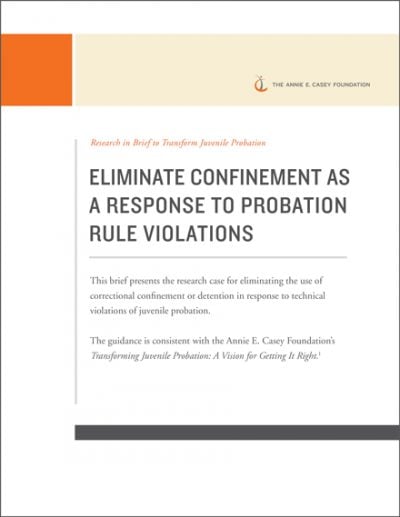Summary
This brief zeroes in on a troublesome juvenile justice practice: the use of correctional confinement for youth who have violated the conditions of their probation — but not the law.
The document explores how confinement causes serious harm to youth but does not reduce future offending. It also examines how the heavy use of confinement for technical violations exacerbates racial and ethnic disparities while also running counter to the lessons of adolescent brain science.
The guidance in this brief is consistent with Casey’s Transforming Juvenile Probation report.







